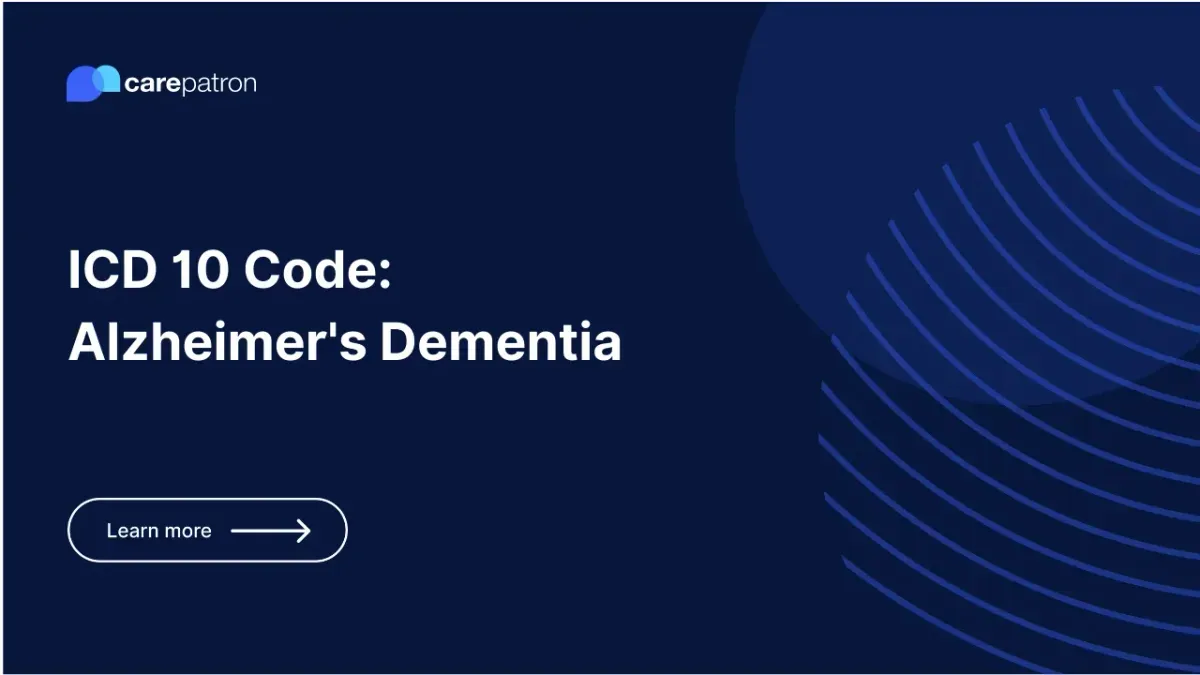
Alzheimer's Dementia ICD-10-CM Codes
Learn the ICD-10 codes used for Alzheimer's dementia and how these codes are essential for patient progress and accurate billing in healthcare settings.
Use Code
Commonly asked questions
An Alzheimer's dementia ICD-10 code should be used when a healthcare provider diagnoses a patient with Alzheimer's dementia. It helps track the patient's progress over time and is used for billing.
While there is no cure for Alzheimer's dementia, treatments aim to slow disease progression and improve quality of life. These treatments include medications to improve cognitive function, lifestyle changes like a healthy diet and exercise, and supportive care such as assistance with daily activities and emotional support.
A diagnosis code for Alzheimer's dementia is a unique code that identifies the disease. It helps track patient progress and is used for billing purposes.
EHR and practice management software
Get started for free
*No credit card required
Free
$0/usd
Unlimited clients
Telehealth
1GB of storage
Client portal text
Automated billing and online payments
